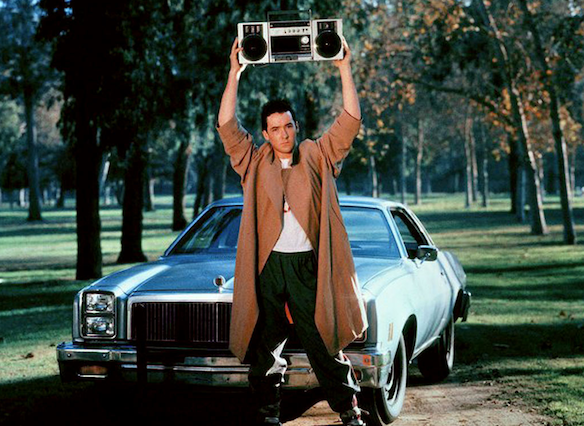
8 Important Communication Rules For Healthy Relationships
People say that the foundation of a relationship is trust? Well I think it’s knowing how, what and when to communicate your concerns to your partner.
By Joanna Jones
I have noticed that most of my failed relationships ended because of, or in connection to, poor communication. People say that the foundation of a relationship is trust? Well I think it’s knowing how, what and when to communicate your concerns to your partner. Here are some tips I’ve discovered through mistakes I’ve made.
1. Never, ever discuss important things on text
Or email, or voicemail or morse code, nothing. Texting has become a crutch in our society, and should be used for small, frivolous things. Here’s a hint: if you are having a conversation of more than 5 or 6 texts back and forth, it’s time to put down the phone (or pick it up, if you want to call). Texting is not really a conversation; it’s a series of messages–usually not in real time–that can be easily misinterpreted. We all know how that famous four letter word, “Fine” can be misconstrued! In person, you can read facial cues, tone and body language. And it’s a lot easier to be harsh and unforgiving when you are talking to a mini computer screen.
2. Be honest with each other
One of the worst turns I’ve seen a relationship take is when one (or both) people pretend they are happy for the sake of making their partner happy or shutting them up. Let’s say you feel uncomfortable with your boyfriend’s new attractive work friend whom you’ve never met, but who has been joining him for happy hour on a weekly basis. Talk to him about it. Despite your fears of being called jealous, controlling, crazy or overly-sensitive, it’s better to be honest with your feelings. When you bottle things up, it can lead to pent-up frustration and explosions later on that can permanently damage relationships.
3. Don’t bring up issues when you will be prone to tears or irrational anger
Okay, so let’s say you have a problem with your SO. Maybe she’s been telling you that you aren’t allowed to watch the game on Sundays, or maybe he is not making an effort to get along with your folks. You’re probably upset, angry, frustrated…there’s plenty of emotions going on. But even though emotion is the source of conflict, conflict doesn’t have to be driven entirely be it. Do not bring up your issue when you know that you may resort to yelling or crying. It’s harder to be rational and see both sides when tears are streaming down your face and four letter words are flying out your mouth
4. All’s fair in love and couple fights
Know how to fight, it’s as simple as that. It’s starts with listening–truly listening to one another. Oftentimes, couples try and talk over each other so it becomes this kind of competition to the argument-ending finish line (which may end up with someone on the couch). Really listen to one another, don’t get nasty or commit low blows. Low blows include name-calling, insults, bringing up the past or bringing up something that you know will be an emotional trigger or “dig.”
5. Try and use “we” statements, or “I feel statements” instead of accusatory “I” and “you” statements
“You never ask me how my day was!” “You always complain about me!” “You never plan dates!” These statements, though they may be true, look like attacks to the person on the receiving end. Instead of pointing fingers, or lamenting your own problems, try and remember that a relationship is two people acting as one unit, not two completely separate individuals trying to get their own way.
6. Resolve conflict with an undertone of love
First of all, as I said, conflict is best resolved in person. Hold his hand, look her in the eyes, perhaps even put an arm around each other. Physical contact will remind you both that the primary reason you are fighting isn’t for the sake of conflict of getting your way, but because you both love and care about each other and want to have a healthier relationship.
7. Pick your battles
No one likes a whiner or a complainer. So let’s say your beau does several bothersome things: he calls you late sometimes, he doesn’t compliment you anymore and he resorts to insults during arguments. The latter one should be addressed firmly and immediately. The middle one can be resolved through some positive reinforcement. But him losing track of time because he was playing the new GTA? Let it go. Life it too short, and too much conflict can get you labeled a nag
8. Conflict doesn’t mean breakup
Repeat after me: just because you’re arguing at this point in your relationship, does not mean you should break up. So many couples end it just because they’ve had a week of rockiness. In my opinion, if you both love each other and there are no issues of cheating, abuse, mental health or extreme incompatibility issues, 9 out of 10 times it shouldn’t have to lead to a break-up. Remember that every relationship has ups and downs. And if you’re not willing to weather the storm to see the sunshine, then you are going to have failed relationship after failed relationship. The beauty of love is not in the dozen roses on Valentine’s Day, or holding each other in the good times, it’s in staying together despite the imperfections. ![]()











